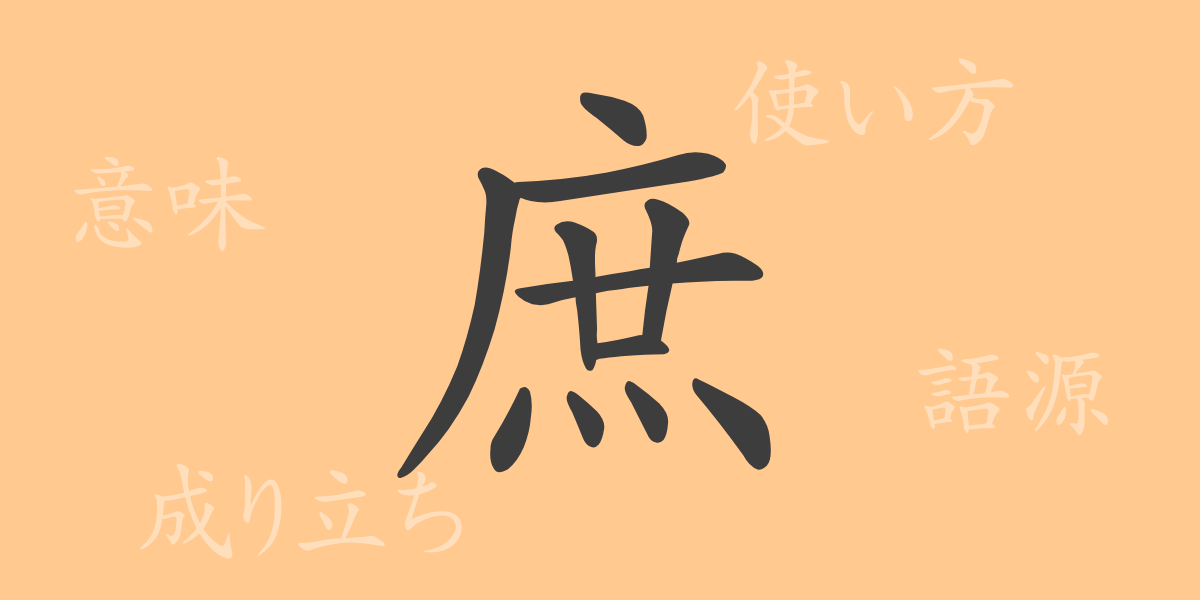The Japanese script culture is profound, and among it, the commonly used kanji are deeply rooted in the daily lives of the Japanese people. This time, we focus on “庶(しょ),” one of these common kanji, exploring its origins, meanings, uses, and various idioms and expressions associated with it. Although “庶(しょ)” may often be overlooked in daily life, it is steeped in rich history and culture.
庶の成り立ち(語源)
The origin of the kanji “庶(しょ)” dates back to ancient Chinese oracle bone scripts. It combines “广(いえ)” meaning house and “嗇(しょく)” meaning many children (also implying saving or conserving). Therefore, “庶(しょ)” came to symbolize many descendants or a large family. This way, “庶(しょ)” signifies diversity and abundance in families and society, reflecting its etymology.
庶の意味と用法
The kanji “庶(しょ)” means “many,” “broad,” and “general.” It is also used in legal terms and classical literature as “庶民(しょみん)” referring to the general public or common people. In the term “庶務(しょむ),” it denotes routine clerical or administrative tasks within companies or organizations. Thus, “庶(しょ)” is employed in various contexts and is intricately linked to our daily lives.
庶の読み方・画数・部首
To understand the kanji “庶(しょ)” correctly, it is essential to know its readings, stroke count, and radical.
- 読み方: 音読みで「ショ(しょ)」、訓読みは特になし
- 画数: 全部で11画
- 部首: 広(ひろびん)
庶を使った熟語・慣用句・ことわざとその意味
There are several idioms, phrases, and proverbs in Japanese that include the kanji “庶(しょ).” For example, “庶務(しょむ)” as mentioned earlier, refers to routine administrative tasks. “庶民(しょみん)” means common people, and “庶事(しょじ)” refers to various miscellaneous matters. These idioms reflect the meanings of “many” and “broad” inherent in “庶(しょ),” making it a deeply rooted expression in our daily lives.
庶についてのまとめ
This article has provided a comprehensive understanding of the kanji “庶(しょ),” its rich meanings, uses, and various idioms and expressions. By looking beyond the mere character, we can appreciate the cultural and historical backgrounds it embodies. When encountering the kanji “庶(しょ),” recalling the knowledge gained here can lead to a deeper understanding and appreciation of its significance.

























